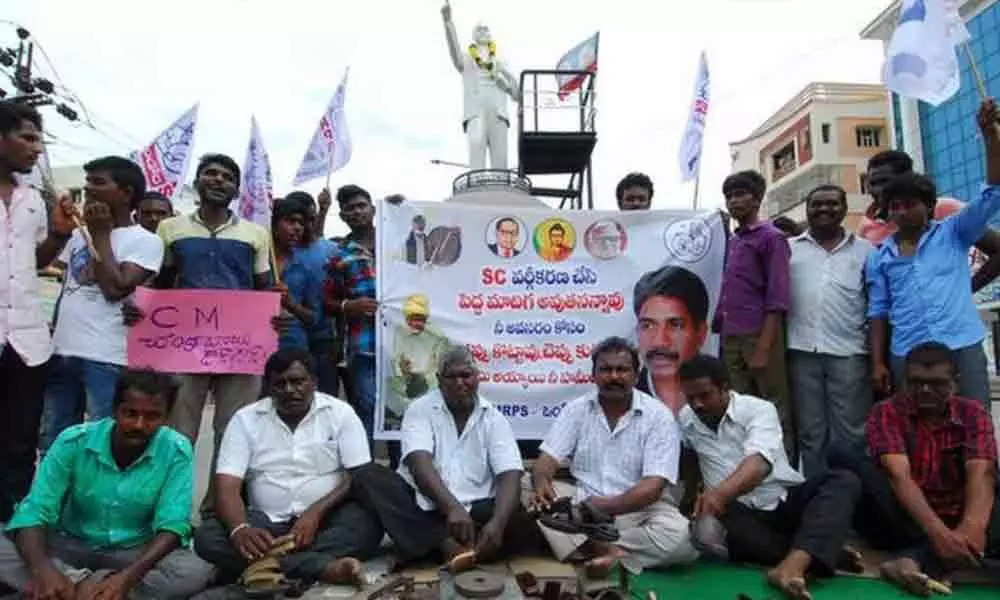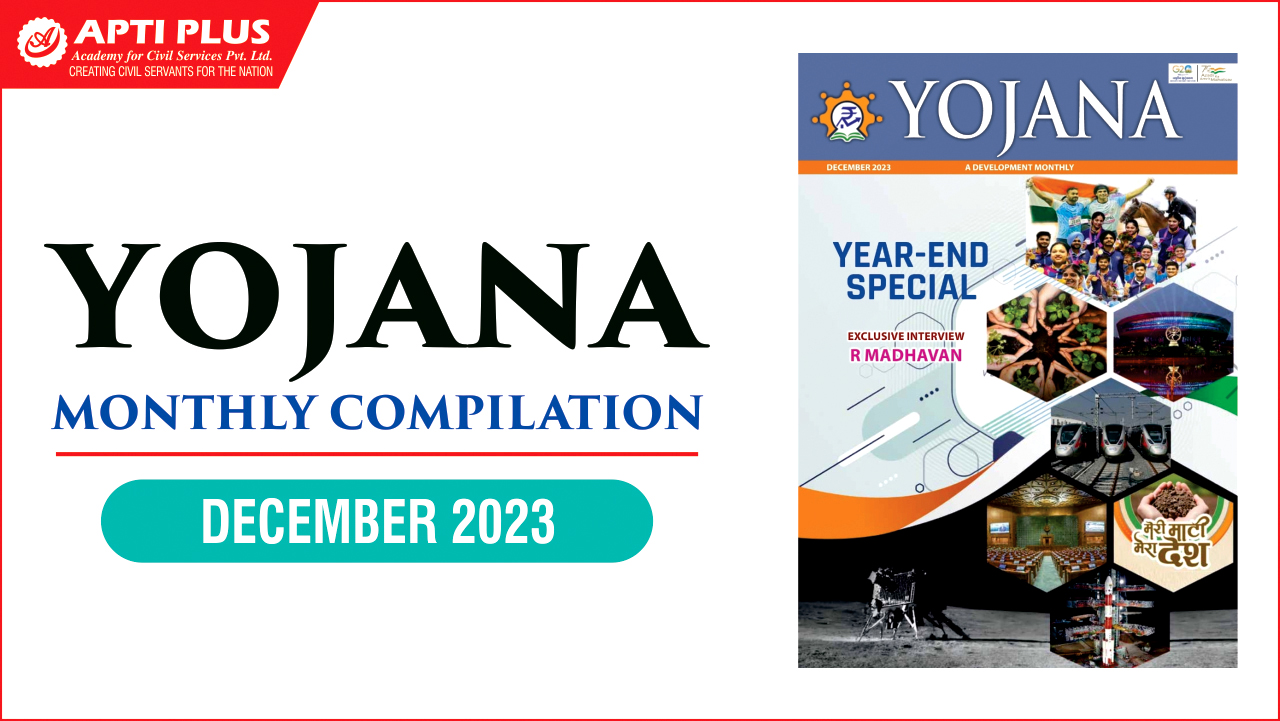Description

Copyright infringement not intended
Picture Courtesy: www.thehansindia.com
Context: The Madiga community in Telangana highlights the issue of dominant communities within Scheduled Castes (SCs) monopolizing benefits meant for all SCs.
Details
- The issue of sub-categorization within the Scheduled Castes (SCs) has gained attention due to the perceived dominance of certain communities over others within this category.
- The demand for sub-categorization has been raised by various SC communities across different states, citing the unequal distribution of benefits and opportunities. The formation of a high-level committee of secretaries by the Union government, chaired by the Cabinet Secretary, is aimed at addressing this issue and finding ways to ensure a more equitable distribution of benefits.
Madiga Community in Telangana
- The demand for sub-categorization was brought to the forefront by the Madiga community in Telangana.
- Despite constituting a significant portion of the SC population in the state, the Madiga community claimed that they were being overshadowed by the Mala community, another SC community considered dominant and relatively forward.
Committee Formation
- Prime Minister's Initiative: The committee was formed as a result of a meeting chaired by Prime Minister Narendra Modi in December 2023. The Madiga community's demand for sub-categorization was a key factor in the committee's establishment.
- Scope of the Committee: The committee's scope extends beyond addressing the concerns of one community in one state. It aims to explore solutions for similarly-placed SC communities across the country facing similar issues.
Purpose of the Committee
- Equitable Distribution of Benefits: The committee will focus on finding ways to distribute benefits, schemes, and initiatives more equitably among the various SC communities. It will explore methods to ensure that government programs reach those who need them the most within the SC category.
- Exclusion of SC Quota Division: The committee is not tasked with breaking up the existing SC quota but will look into alternative ways of addressing the grievances faced by specific SC communities.
- Focus Areas: The committee will include Secretaries from key ministries such as Home, Law, Tribal Affairs, Social Justice, and Department of Personnel and Training. Its focus includes designing special initiatives for communities in need, redirecting existing programs, and ensuring a more even distribution of benefits.

Madiga Community
- Madiga community, constituting over 50% of the SC population in Telangana, feels disadvantaged in accessing reservation benefits despite their size. This perception stems from the dominance of the Mala community within the SC category, leading to unequal distribution of resources and opportunities.
Arguments for Reservation for Madiga Community
- Historical Inequity: Madigas faced severe social and economic exclusion, impacting their educational and professional advancement. Reservation could help bridge this historical gap.
- Dominant Caste Dynamics: The Mala community's advantage within the SC category limits Madiga access to educational institutions, government jobs, and other reservation benefits.
- Socio-economic Status: Madigas lag behind Malas in literacy rates, income levels, and overall socio-economic development. Reservation could provide targeted support for their upliftment.
- Constitutional Mandate: Articles 15(4) and 16(4) of the Indian Constitution allow for special provisions for specific castes facing particular disadvantages. Madiga reservation could align with this principle.
Challenges and Concerns
- Legal Obstacles: The Supreme Court is yet to decide on the legality of sub-categorisation within SCs. Amending the Constitution for the Madiga reservation might face legal hurdles.
- Intra-Caste Discord: Some within the Madiga community might oppose reservation, further delaying its implementation. Building consensus is crucial.
- Politicization of the Issue: Political parties might exploit the issue for their gains, hindering an objective solution.
- Impact on Other SC Communities: The Madiga reservation should not disadvantage other marginalized SC communities. A balanced approach ensuring inclusivity is important.
Alternative Solutions
- Targeted Schemes: Develop and implement special schemes and initiatives focused on educational advancement, skill development, and economic empowerment of Madigas within the existing SC quota.
- Data-Driven Approach: Gather empirical data on socio-economic indicators of different SC communities to inform targeted interventions and resource allocation.
- Awareness and Advocacy: Increase awareness among Madigas about existing reservation benefits and empower them to utilize them effectively.
- Community Empowerment: Strengthen Madiga community organizations and leadership to promote collective action and address internal inequalities.

Conclusion
- Reservation for the Madiga community is a complex issue with historical, social, legal, and political dimensions. While it deserves serious consideration due to the community's grievances and historical disadvantages, the approach must be comprehensive, addressing concerns about legal feasibility, potential intra-caste discord, and ensuring overall inclusivity within the broader SC category. Exploring alternative solutions like targeted schemes, data-driven interventions, and community empowerment could also play a critical role in promoting Madiga advancement and addressing socio-economic inequalities within the SC population.
Must Read Articles:
SUB-CATEGORISATION AMONG SCs: https://www.iasgyan.in/daily-current-affairs/sub-categorisation-among-scs
SUB-CATEGORISATION WITHIN CASTES: https://www.iasgyan.in/daily-current-affairs/sub-categorisation-within-castes
|
PRACTICE QUESTION
Q. Which state in India has the highest percentage of Madiga population within the Scheduled Castes?
A) Andhra Pradesh
B) Telangana
C) Tamil Nadu
D) Karnataka
Answer: B
Explanation:
Over 50% of the Scheduled Caste population in Telangana belongs to the Madiga community.
|










